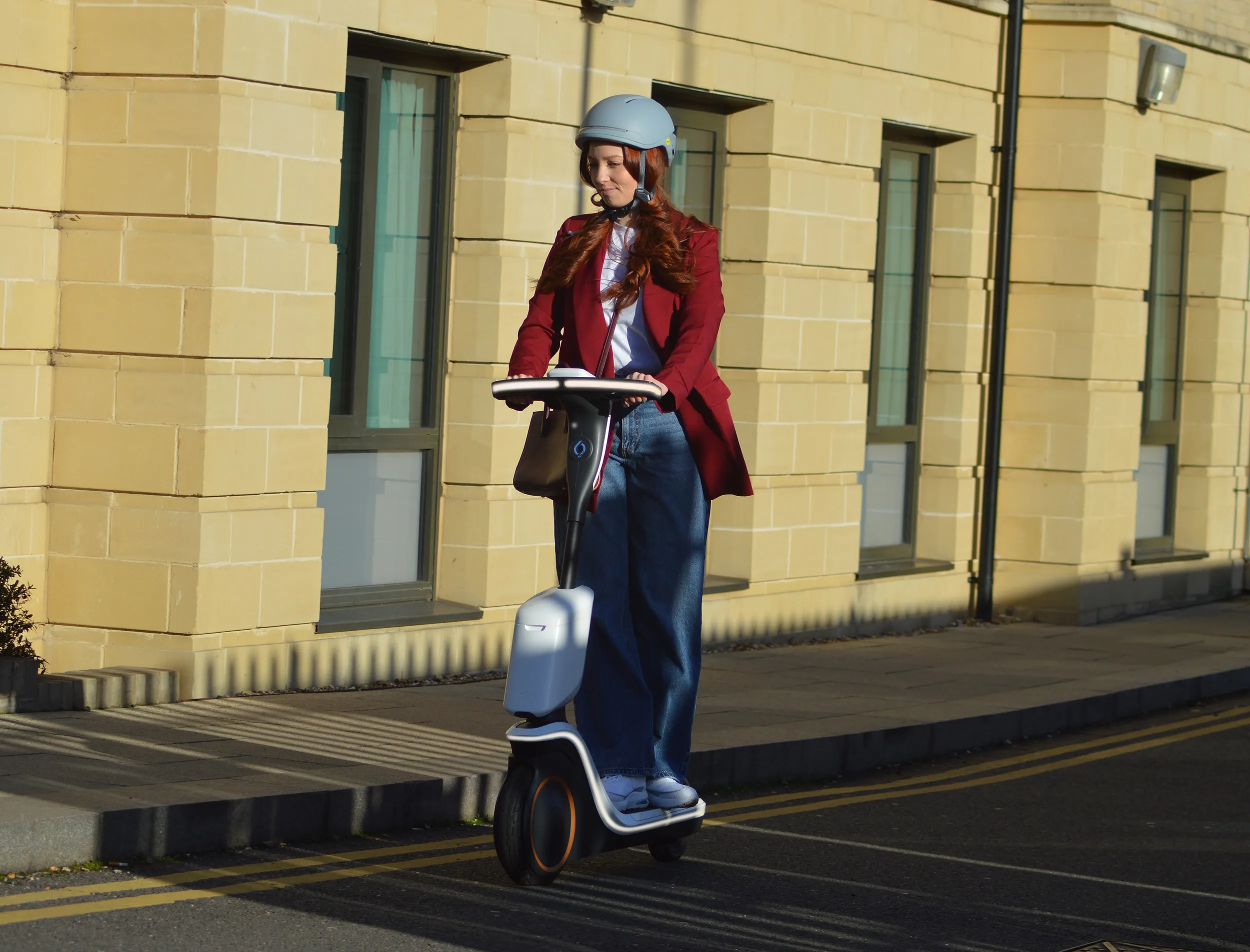
A new e-scooter concept and prototype - which its maker says prioritises the safety of riders and other road users using AI - will be pitched to investors at Micromobility Europe 2023 in Amsterdam in June.
Hilo EV "uses AI to scan its surroundings for hazards such as pedestrians and vehicles, and actively applies a number of functions to warn of the danger".
The scooter also has a larger front wheel to cope with bumps and potholes, and has a ‘halo’ light to illuminate the rider and increase visibility.
The project is receiving up to £3.6 million of funding from the England European Regional Development Fund as part of the European Structural and Investment Funds Growth Programme 2014-2020, accessing grants with help from support programme Business Ready.
While currently aimed at the private market, Hilo hopes it can become part of local authorities' transport systems worldwide.
Robin Harris, co-founder of Hilo EV, was inspired to create Hilo after riding an e-scooter in the Chinese magacity Chongqing in China
Dr Andy Palmer, former CEO of Aston Martin and described by the company as an 'EV pioneer', has invested
“Rightly or wrongly, the public perception of e-scooters is that they are a menace and can cause injuries to riders and fellow pedestrians," he said, adding that Hilo's commitment to safety impressed him.









